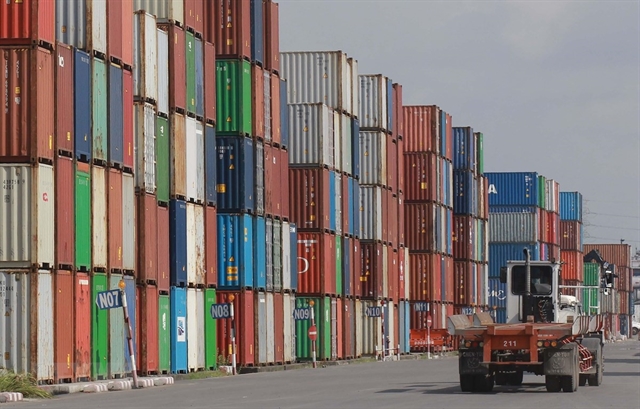
HÀ NỘI — Joining the world logistics passport (WLP) initiative could help enterprises reduce logistics costs and increase competitiveness for exports.
Nguyễn Minh Phương from the Ministry of Industry and Trade’s Asia – Africa Market Department said the logistics industry of Việt Nam was developing along with the country’s increase in imports and exports.
Phương said that Việt Nam had an advantageous geographical position to develop a logistics centre in Southeast Asia with an improved system of warehouses, seaports and highways, adding that the development of the logistics industry would also create favourable conditions for Việt Nam to become a new production centre of the region.
According to Avery Shipton from the WLP initiative forum, products granted passports by the UAE would be given priority in customs clearance with less time for checking, loading and storing. Products could be cleared before arrival at the ports.
WLP would help save time and costs by around 40 per cent, he said.
Some ports of UAE are currently offering exemption of duties and fees for products with WLP, which is expected to boost trade between Việt Nam and UAE and other markets in the Middle East region from 0.5 per cent to 27 per cent.
According to world logistics passport, the WLP is a global, private sector-led initiative designed to smooth the flow of global trade, unlock market access and provide economic efficiencies to members.
Enabled by key logistics partners such as airports, ports, and customs, the WLP offers financial and non-financial benefits to traders and freight forwarders in reward for increasing their trade.
The WLP, the world’s first global freight loyalty scheme, benefits businesses by reducing their supply chain costs and ensuring that goods will be moved faster and more efficiently. This is achieved through access to benefits such as quicker customs clearance and priority handling and leads to a 2-3 per cent increase in trade value over two years.
It is established to overcome trade impediments that limit trade growth and build logistical bridges between manufacturing hubs in Asia, Africa, and Central and South America.
To date, the WLP networks include countries across Latin America, Africa, the Middle East and Asia, with more global trade hubs registering every month.
Building a better logistics system is critical for Việt Nam to increase competitiveness and expand exports, as geopolitical tensions and rising oil prices are causing transportation costs to grow rapidly.
According to Trần Thanh Hải, deputy director of the Ministry of Industry and Trade’s Import-Export Department, the COVID-19 pandemic pushed up sea freight rates by 4-6 times in the past two years, and there has been no sign of cooling down.
Figures of the Việt Nam Logistics Association revealed that logistics costs were equivalent to around 20-22 per cent of the country’s GDP, much higher than Thailand (19 per cent), China (18 per cent), Malaysia (13 per cent) and nearly three times higher than the US and Singapore (8 per cent).
Nguyễn Tương, an expert from the Việt Nam Logistics Association, said that high logistics costs were pushing up the prices of products, which was a big problem for export firms and competitive advantages of Vietnamese products.
Tương pointed out that a problem of Việt Nam’s logistics industry was that most enterprises were small and medium-sized, and had a lack of linkage and connectivity among transport modes and a shortage of infrastructure.
He said logistics firms should promote cooperation to create an efficient supply chain.
He said that to lower logistics costs, it was also necessary to renovate operation methods to accelerate digital transformation. — VNS
- Reduce Hair Loss with PURA D’OR Gold Label Shampoo
- Castor Oil Has Made a “Huge” Difference With Hair and Brow Growth
- Excessive hair loss in men: Signs of illness that cannot be subjective
- Dịch Vụ SEO Website ở Los Angeles, CA: đưa trang web doanh nghiệp bạn lên top Google
- Nails Salon Sierra Madre
 VnExpress News The News Gateway of Vietnam
VnExpress News The News Gateway of Vietnam




